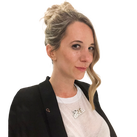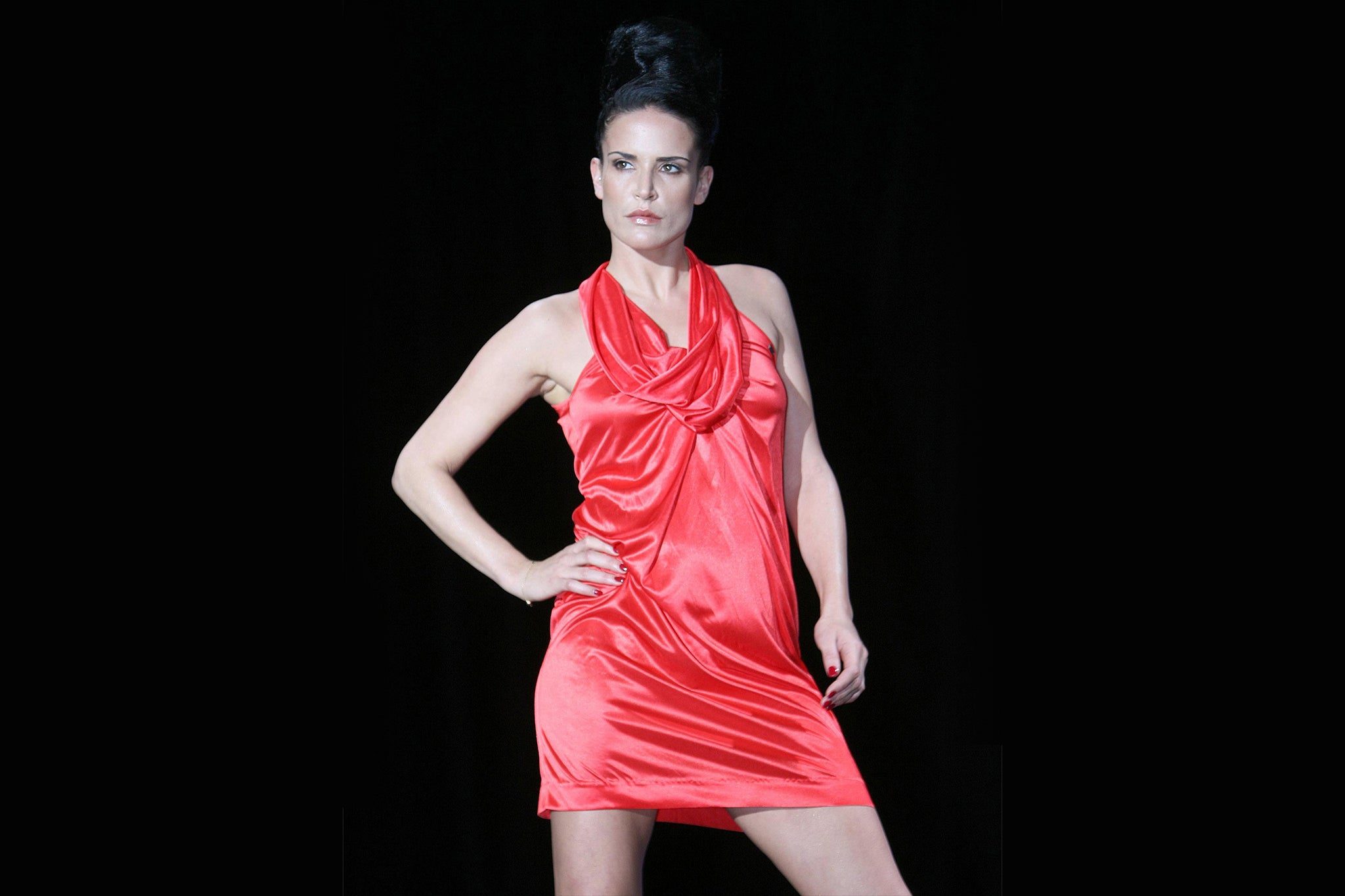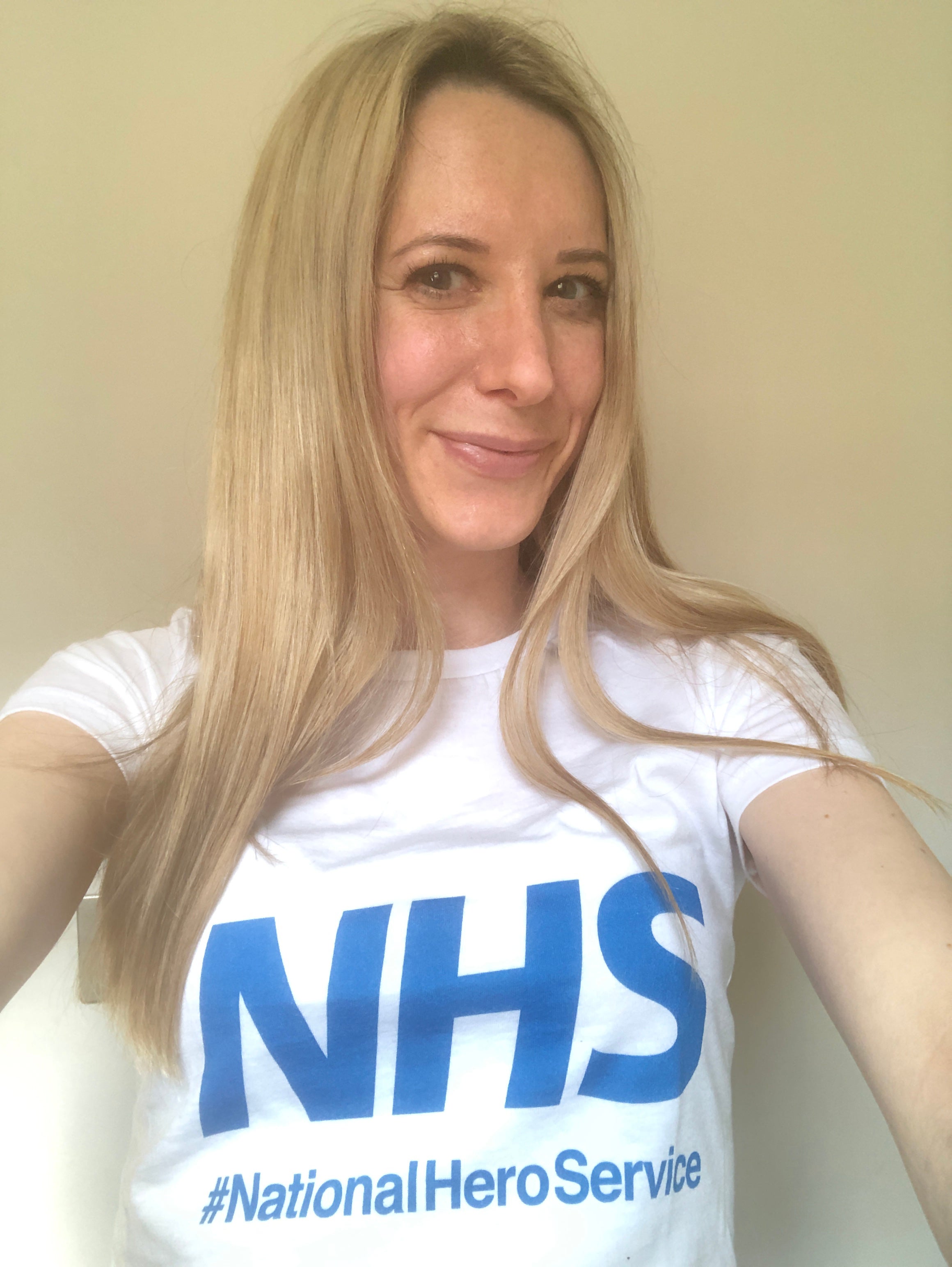Like Sophie Anderton, I have felt the shame and pain of struggling to have a child of my own
When British model Sophie Anderton revealed a miscarriage left her feeling like ‘damaged goods’, it struck at the heart of Katy Lindemann’s own experience. The agony of a fertility battle never leaves you she says, and only those who have experienced it can understand


Dried up. Lacking. Inadequate. Deficient.
This is how I felt over the years of trying and failing to have a baby. In a recent interview, former model Sophie Anderton reflected on her experience of own pain, using words that I could have easily said myself. Describing how a miscarriage made her feel like “damaged goods”, behind her smile she hid intense feelings of shame and anger – something anyone who has ever struggled with pregnancy loss, recognises only too well.
Outwardly I’m seen as confident, bubbly and accomplished – in my career as a strategy consultant I’ve travelled the world and delivered presentations to senior executives at some of the best-known global brands. But years of failed IVF and miscarriages left me turning in on myself, viewing my body as substandard, inferior, and fundamentally not up to the job.
My womb wasn’t the seat of my inner goddess or a potent symbol of Mother Nature’s life-giving cycle of renewal it was meant to be; it was useless and redundant – either a coffin for a dead baby or simply an empty vessel of nothingness. I wasn’t just infertile. I was really infertile. I was barren. For years I didn’t feel like a vibrant, sexual woman, but rather a science experiment – and a failed one at that. A clapped-out engine with missing parts that no engineer seemed to be able to fix.
When we got married, we’d never expected to be one of those couples with a honeymoon baby, due to my diagnosis of polycystic ovarian syndrome (PCOS), but we were totally blindsided by the issues that turned out to be much, much harder to treat. I put on a brave face to the world, telling myself (and others) that IVF and pregnancy loss ought not to be a dirty secret. But underneath it all, I felt shame. Maybe not of being infertile per se – but rather the horrible, messy feelings I have experienced as a result.

I was angry. Angry that my body wouldn’t do what it was supposed to be able to do, that everybody else seemed to manage. Angry about the endless well-meaning (but wildly insensitive) comments, including classics like “why don’t you just adopt?”, “you just need to relax”, “having kids isn’t all it’s cracked up to be” – and my all-time favourite, “you never know true love until you have a child”. Angry that no matter how hard I tried to get or stay pregnant, I couldn’t. The “trying” in “trying to conceive” felt so bloody apt.
I felt ashamed of the raging jealousy I felt towards friends who popped out babies nine months after getting married, and the “he-only-has-to-look-at-me-and-I-get-pregnant” colleagues on maternity leave (again). I felt guilty at resenting others for succeeding where we were failing; why couldn’t I just feel happy for them, without feeling sorry for myself? Tormented by these feelings, and the feelings of shame at feeling them at all.
Doctors on both sides of the Atlantic tried everything to help us. We explored every treatment avenues in Operation: Broken Womb – but every conceivable option turned out to be anything but. They all say my case is a real head-scratcher; they don’t know why, but my body is simply unable to sustain a pregnancy. A full stop at the end of a very long sentence.
I knew that none of this was my fault, but I couldn’t escape the deep feelings of self-blame. In my darkest moments, I would say that my body killed our babies – I’d let them and my husband down. Comforting me, he’d gently remind me that he already had everything he came for, and anything else was a bonus.
Infertility affects one in six people, and one in four pregnancies ends in miscarriage, but people only seemed to talk about these experiences *after* they’d got their happy ending. It often felt like the only acceptable infertility narrative was one of optimism and perseverance, and how “it’ll all be worth it when you have your baby in your arms”.
Except that not everyone does end up with a baby in their arms. Like me. Like millions of other women – all of us members of a “barren” club that no one wants to join. When fertility became futility, the only way out of the darkness that was presented to me came in the form of a much-longed-for child. But when we only have stories with fairytale endings, it leaves no space for stories of survival.

What got me through was finding my tribe; other women whose journeys were longer, more challenging – kindred spirits who just got it. There seemed to be a yawning chasm between the world of infertility I saw in public and the one I knew in private, so I created a platform – the Uber Barrens Club – and put a call out for women to tell the truth about infertility as it really is, not how it ought to be. Brave, badass, barren women came forward and shared their stories of infertility; how it can be deeply traumatic, desperately unfair, and utterly unrelenting. Their sisterhood and support were my lifeline because they showed me that all my emotions were valid – that even the ugliest and craziest thoughts. But there was also warmth, humour, and camaraderie found along the way. Whatever we were feeling, someone else had felt the same.
I now use these anonymous stories when I’m speaking at conferences and running training courses as part of my patient advocacy work. It helps inform people of what not to say. Anderton puts it perfectly when she describes it as “intolerable” that some people still think it’s OK to ask women like us why we don’t have children. I personally don’t think it’s unreasonable to ask if someone has children (although I wouldn’t recommend it as an opening gambit, you never know what someone is going through). But what isn’t OK is to ask them why that might be or ever suggest what they might do about it.
Talking about IVF might no longer be taboo, but entertaining the very real possibility that I might not become a mum seemed to be unsayable. More than half of women in England and Wales don’t have children at the age of 30, nor one in five women by 45 – a trend that’s only likely to grow.
An adult without a partner is single. We invent new words all the time; Merriam-Webster added 690 words to their dictionary in September 2023 alone. But it’s striking that there’s no word in the English language for an adult who isn’t a parent that isn’t defined by what we lack: we’re either childless, or childfree. It’s as though we’re not-quite adults, who’ve not reached our expected developmental milestones.
My husband and I didn’t end up with children – and it’s not because we didn’t try hard enough, or didn’t want it enough. It’s because sometimes it just doesn’t work. But while it’s not the life I’d chosen, it’s the life we have – a life that can be both barren and beautiful. A happy ending was still possible, however things turned out. The word “mother” is both a noun and a verb – that there are lots of ways to care for and nurture others. That “you’ll get there” was in fact correct – it’s just that “there” might not mean a baby. So to anyone else who’s a member of this sh**** club, please know that you will get there, and you will be OK.
You can find out more about the Uber Barrens Club on their website and Instagram. You can also follow them on Twitter here.
The Sands national helpline provides support for anyone affected by the death of a baby. You can call 0808 164 3332 free of charge, or email helpline@sands.org.uk






Join our commenting forum
Join thought-provoking conversations, follow other Independent readers and see their replies
Comments